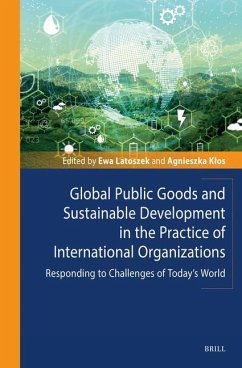
Politics and International Law
Making, Breaking, and Upholding Global Rules
Versandkostenfrei!
Versandfertig in über 4 Wochen
150,99 €
inkl. MwSt.
Weitere Ausgaben:

PAYBACK Punkte
75 °P sammeln!
"In late 2015, almost every state in the world pledged its support for the Paris Climate Agreement. This environmental agreement declares that "climate change is a common concern of humankind" and calls upon its member-states "to undertake ... ambitious efforts" to limit greenhouse gas emissions.1 The path to Paris wasn't easy. Environmental advocacy in the United Nations (UN) began in the 1960s and 1970s. This advocacy eventually pushed states in 1992 to begin attending annual UN negotiations on climate change. These negotiations eventually yielded the Paris Climate Agreement.Within developed...
"In late 2015, almost every state in the world pledged its support for the Paris Climate Agreement. This environmental agreement declares that "climate change is a common concern of humankind" and calls upon its member-states "to undertake ... ambitious efforts" to limit greenhouse gas emissions.1 The path to Paris wasn't easy. Environmental advocacy in the United Nations (UN) began in the 1960s and 1970s. This advocacy eventually pushed states in 1992 to begin attending annual UN negotiations on climate change. These negotiations eventually yielded the Paris Climate Agreement.Within developed states, the Paris Climate Agreement was hailed as a landmark achievement. Malcolm Turnbull, the Prime Minister of Australia, proclaimed in 2015 that: "We do not doubt the implications of the science, or the scale of the challenge. But above all, we do not doubt the capacity of humanity to meet it."6 However, many developing states were less enthusiastic, noting that the problem of climate change had been caused by other states. For example, Narendra Modi, the Prime Minister of India, noted that: "The prosperous still have a strong carbon footprint. And the world's billions at the bottom of the development ladder are seeking space to grow ... Climate justice demands that, with the littler carbon space we still have, developing countries should have enough room to grow."7 While all states are affected by climate change, many developing states resent being asked to solve a problem created by powerful and rich states"--













